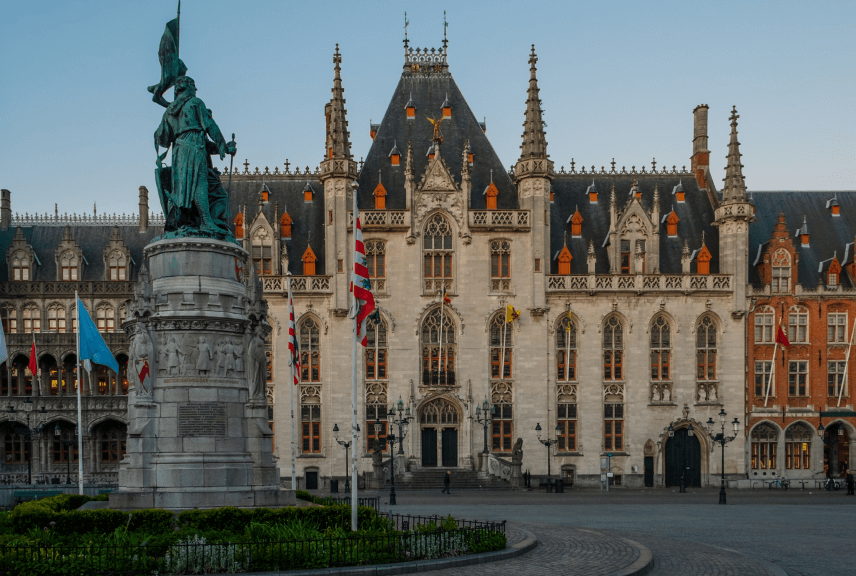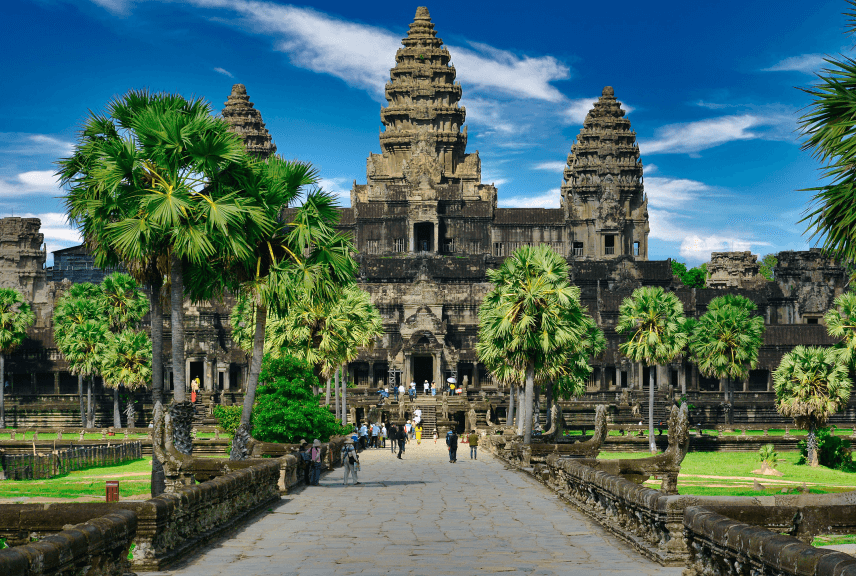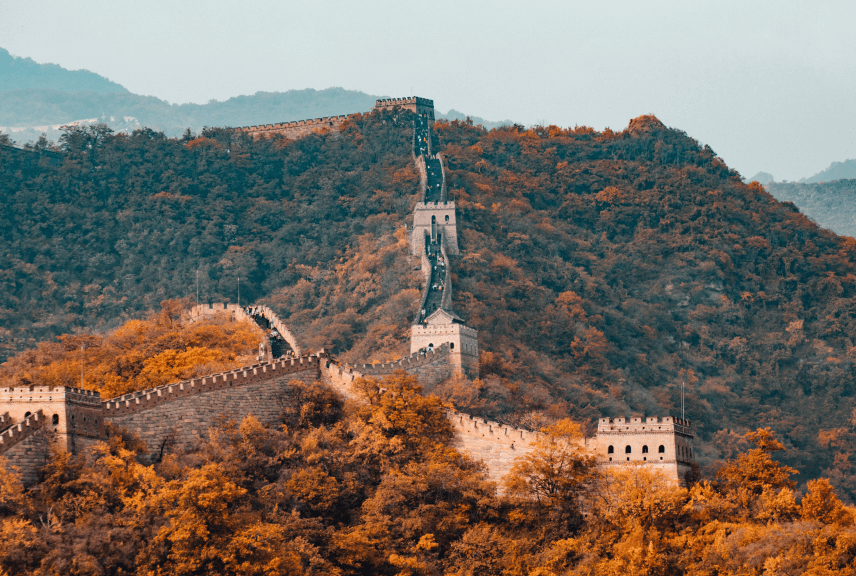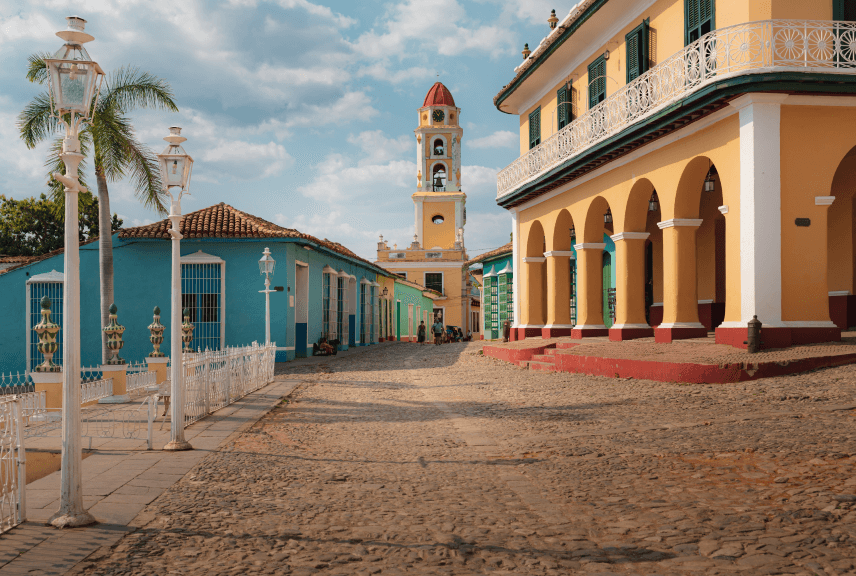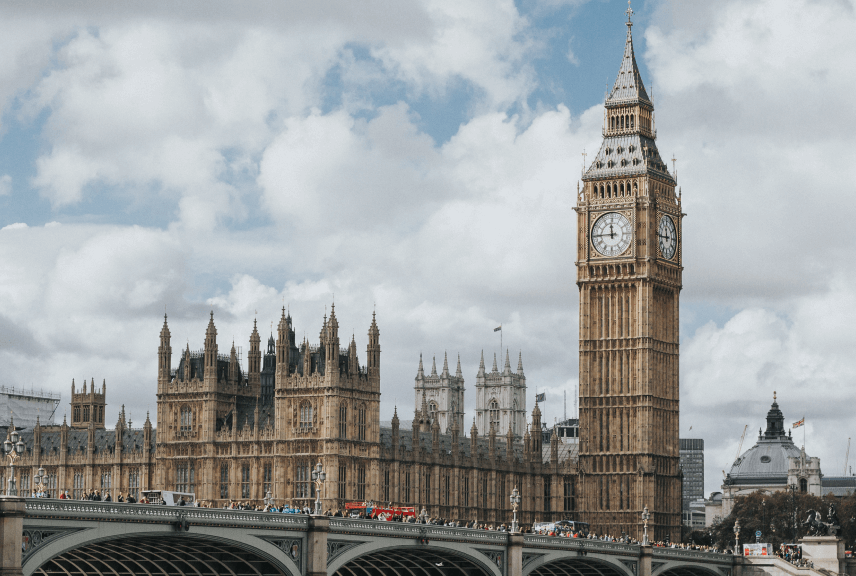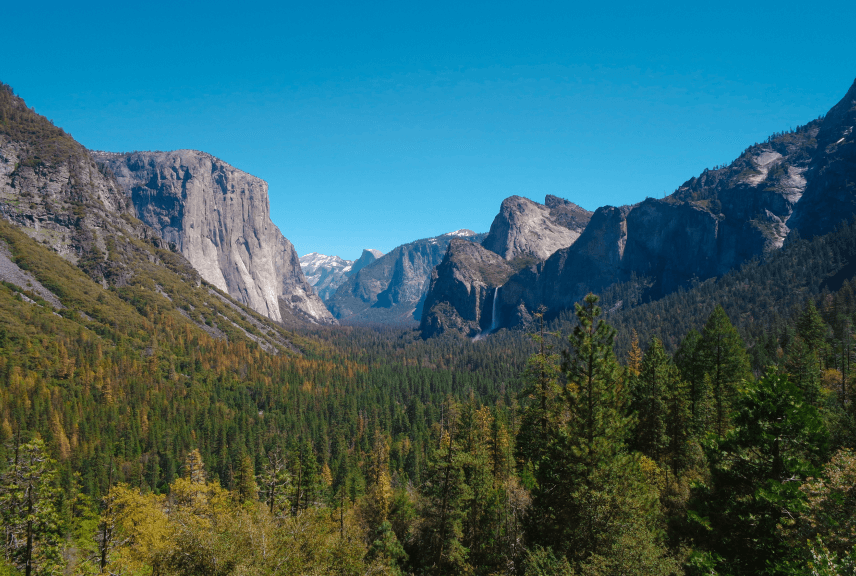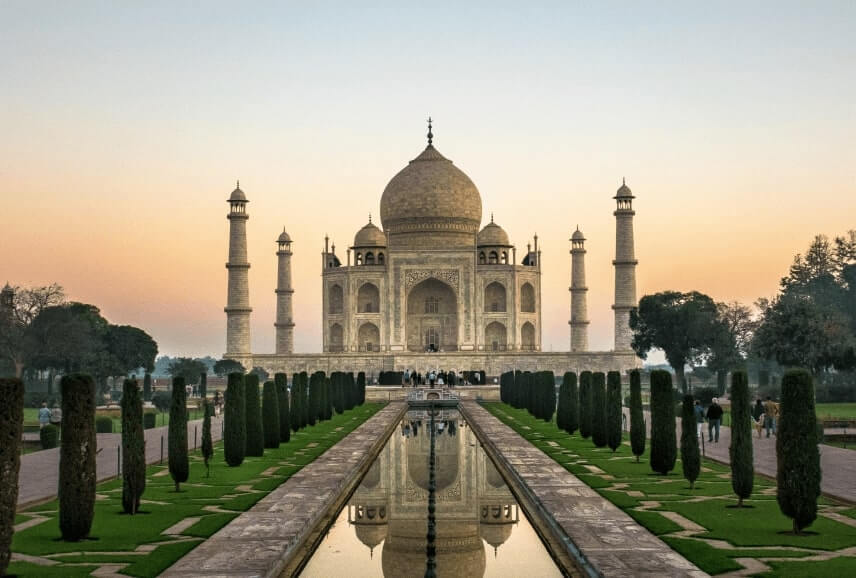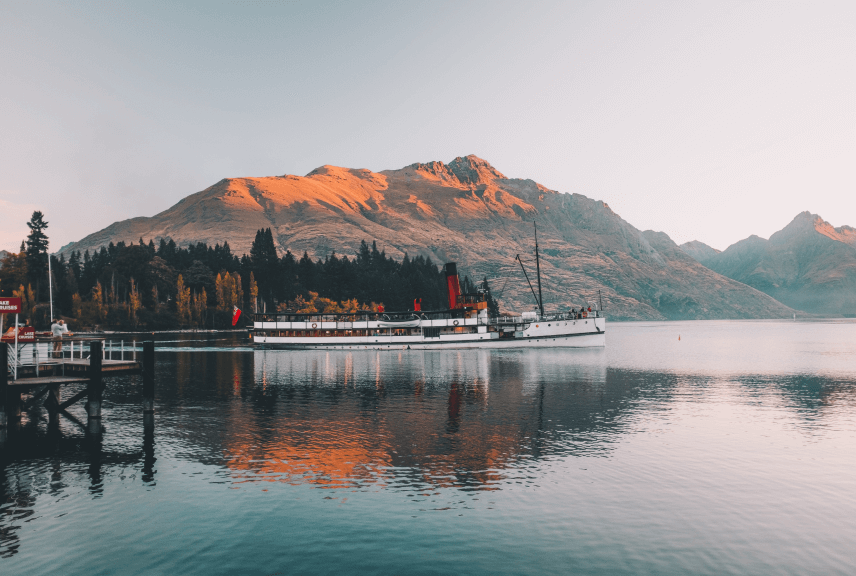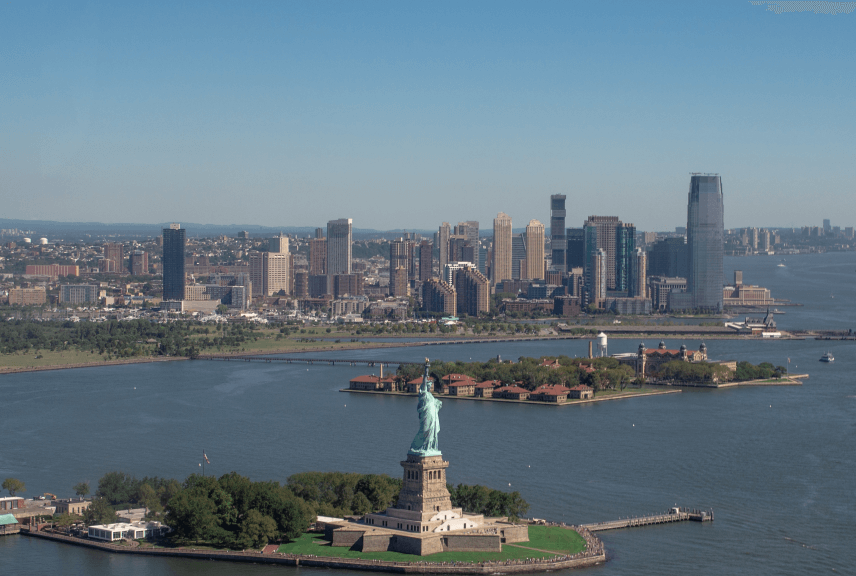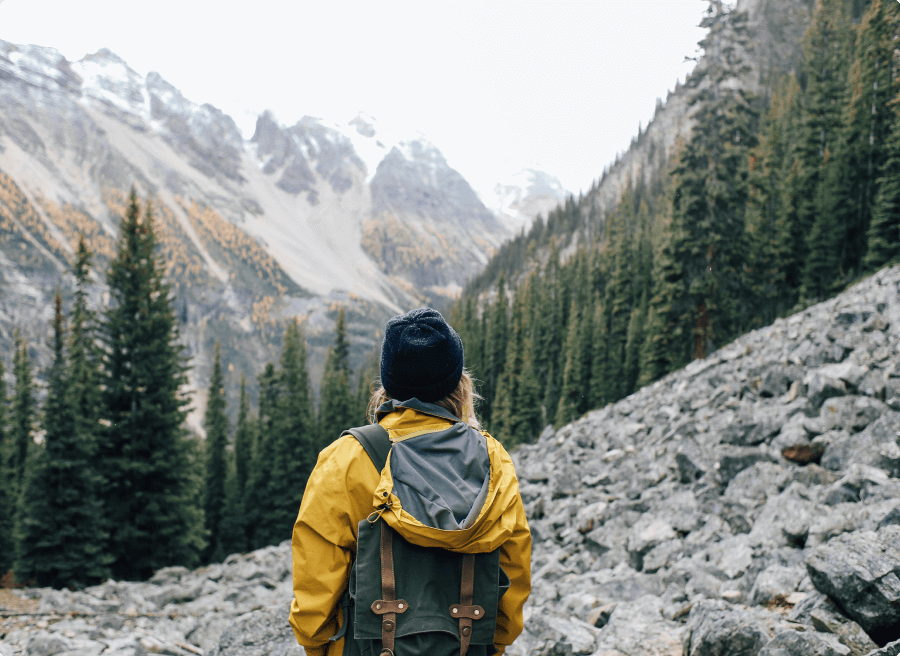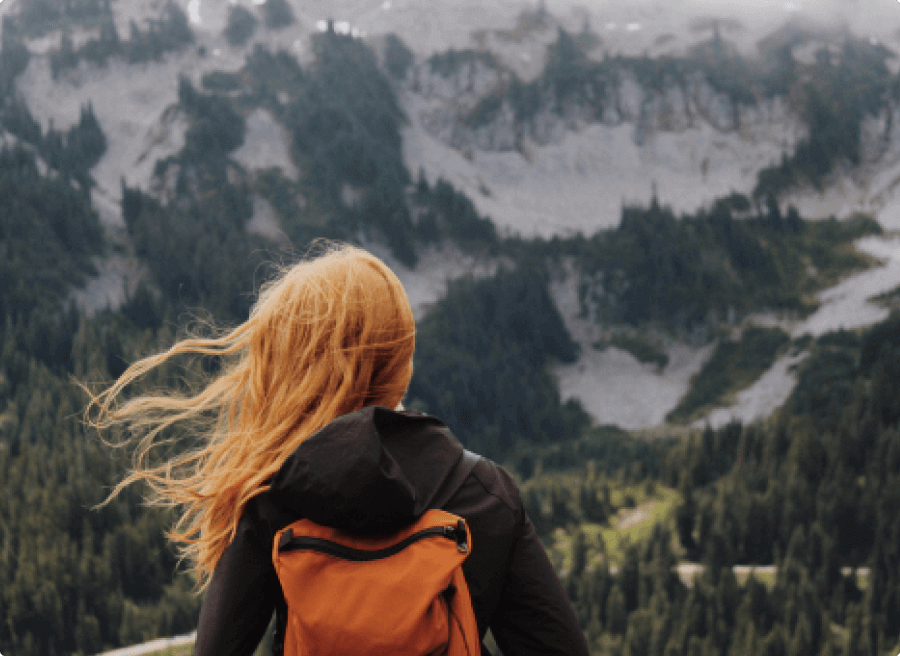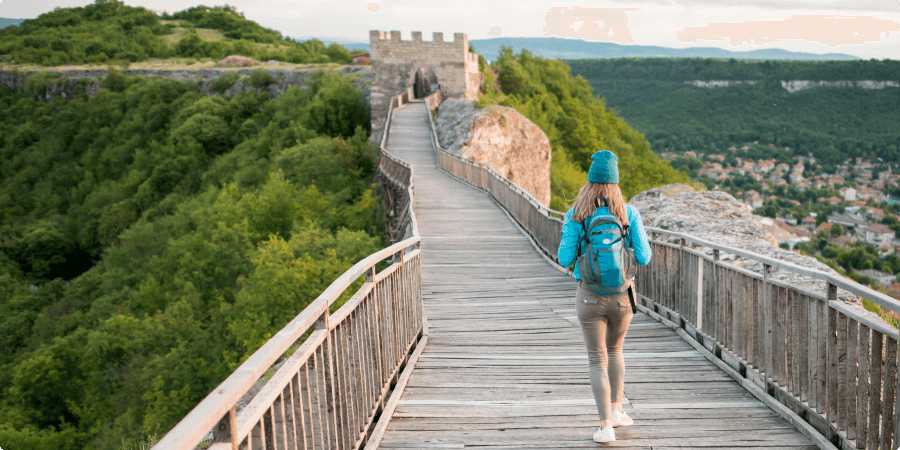The lush and landlocked country of Laos is said to be the last peaceful haven in Southeast Asia. Surrounded by busier Vietnam, Thailand, and Cambodia, Laos is a land of dense jungles and adorable French Colonial cities astride the great Mekong River.
I recently spent three weeks in the country and was blown away by its natural beauty!
In this Laos itinerary, we’ll travel from north to south (essentially), hit all the cultural hotspots, take a famous boat trip, and swim in some of the most beautiful waterfalls I’ve ever seen.
Since three weeks is more than most have for a vacation, we’ll stick to a two-week itinerary, which allows you to see the best of Laos without rushing too much.
Know Before You Go: Laos Travel Tips
For most travelers, Laos is a quick stopover from Thailand, adding another country to the checklist. However, they are generally left wanting more, aching for a return to this incredibly underrated travel destination.
Laos is still a developing nation and substantially more laid-back than neighboring countries. That’s refreshing, but means the tourist infrastructure is not on par with the rest of Southeast Asia. Navigating this Laos travel itinerary will be fairly easy, but there are a few tips you should know beforehand.
Online Booking
Some major bus routes are available via Bookaway or the king of online travel in Asia-12Go, but many of your tours and transportation will be booked in person on the ground. Thankfully, most guest houses have in-house tour agencies that offer easy-to-book excursions.
Even when booking online, the service may send a local runner to acquire your tickets, which will be dropped off at your hotel. It’s rare to use a QR code or digital ticket in Laos. Due to this runner system, it’s important to book your transportation in advance!
This particularly applies to the new fast train from Luang Prabang to Vang Vieng! I recommend booking at the ticket hut in Luang Prabang at least three days in advance. We regrettably missed most of our trip to Vang Vieng because we could not get a last-minute train!
Transportation Options in Laos
Minivans, buses, and tuk-tuks are common, but the quality of rides varies drastically, and the route doesn’t always make sense.
Currently, there are no direct flights to Laos from locations outside of Asia. Most travelers choose to fly via Bangkok, with a flight time of just over an hour to Vientiane and just under two hours to Luang Prabang.
The Money Situation in Laos
Laos is still a predominately cash-based society. The official currency is the Laos Kip (app. 21,000 Kip=1$). In major cities, you can pay with American Dollars or Thai Baht as well.
Even when booking accommodations or travel online, you may have to pay in cash upon arrival.
The Ultimate Two-Week Laos Itinerary
Now that we’ve got our bearings, let’s jump into the details! We’ll follow the typical Laos backpacking route with a few hidden gems added in.
You won’t see it all in two weeks, but you’ll dip your toes in the rich culture, rest in the peaceful ambiance, and enjoy some exciting activities.
Day 1-2: Slow Boat to Luang Prabang
The slow boat ride from Thailand to the enchanting city of Luang Prabang is kind of the backpacker rite of passage, and in my humble opinion, it’s the only acceptable way to enter Laos!
The Slow Boat Journey
For most, the two-day adventure starts in Northern Thailand. Once you cross the border, you’ll hop on a traditional long boat from the tiny town of Huay Xai in Northern Laos. You’ll float for two full days with an overnight stop in the riverside village of Pakbeng.
Scheduling the Slow Boat
There are a few ways to schedule your boat. The easiest approach is to book through your guesthouse in Thailand. They will secure a transfer to the border and fit you with paper tickets for the boat.
The second (slightly cheaper) option is to take a local bus from Chiang Mai or Chiang Rai. I chose the red bus from Chiang Rai Bus Terminal 1. It’s 70 Thai Baht (approximately US$2).
After a couple of tuk-tuks and a border bus, you’ll arrive in Huay Xai. Go straight to the pier to book your boat, or book from your guesthouse. The ticket costs 430,000 Kip (US$20.64) at the pier. If you book through your guesthouse, expect a US$1-2 surcharge, which includes a tuk-tuk to the pier.
Take Your Time
Many travelers leave early from Chiang Rai and take the boat the same day. I do not recommend this! It’s rushed and stressful. Plan to stay one night in the charming village of Huay Xai instead. Stock up on snacks, experience the local culture, and get used to the slower charm of Laos.
Border Crossing and Laos Visas
I was very impressed with the ease and organization of the border process! Though you have to take several tuk-tuks and buses, it’s all laid out methodically, and there is plenty of guidance along the way.
Visa prices range from US$35-50 depending on the issuing nation of your passport. Payment is accepted in cash only. They accept Thai Baht, Laos Kip, or US Dollars (new issues with 3D security ribbons in excellent condition only).
Pro Tip: If you pay in Laos Kip, you will not get a favorable exchange rate and will pay more for your visa.
The Boat Experience
Though filled with tourists today, the boats are technically local cargo and people movers. Typically overflowing, especially during high season, the trip is a bit chaotic.
However, it’s also a wonderful journey filled with unspoiled nature. You’ll meet other travelers, enjoy epic views of lush forests, and float past quaint villages.
Seating varies by boat—either benches with tables or old bus seats. They aren’t bolted down, and they slide around a bit, but that’s all part of the fun.
I highly recommend arriving at the pier by 9 am to secure a seat in the front, near the window. The back of the boat houses the engine and is incredibly loud!
The boats have a basic bathroom (I recommend bringing toilet paper). Snacks and beers are also available onboard for a surprisingly fair price.
Where to Stay in Pakbeng
Your night in the remote village of Pakbeng is not included in the boat ticket. I recommend booking in advance. Several travelers did not on our trip, and they ended up sleeping on porches in town.
Accommodations in the village are simple. Don’t expect luxury here. I stayed in the Syvongsack Guesthouse. It was passable but could use a good scrubbing.
Some nicer yet affordable hotel options in Pakbeng:
Simple lodge with incredible views: Mekong Riverside Lodge
Resort: Le Grand Pakbeng
Slow Boat Alternatives
If the backpacker life isn’t your thing, there are also speed boat tours and luxury-style cruises.
These are obviously more luxe and comfy, but you’ll pay a considerably higher price and miss out on all the chaos.
Day 3-5: Exploring Luang Prabang
If you haven’t taken the slow boat and instead flown in from Bangkok, I would use the extra days in Luang Prabang itself as there really is a bit to do!
Luang Prabang is an enchanting city and the perfect hub for Northern Laos. Nestled between the Nam Khan River and the Mekong River, Luang Prabang is a UNESCO World Heritage City famed for its French Colonial architecture and vibrant markets.
It’s often touted as the “most beautiful city in Southeast Asia”. I must say—I completely agree! I would plan to spend at least two full days exploring Luang Prabang.
Arrival in Luang Prabang
If you arrive by boat, tuk-tuks will be waiting to take you to the city center.
You’ll be dropped in the main roundabout, and most prominent guesthouses are within walking distance.
Where to Stay in Luang Prabang
My favorite guesthouse was Ban Chuannane. It’s located just around the corner from the best coffee house in town and riverside restaurants, it boasts large rooms, free coffee, and a shared balcony. The guesthouse made a lovely home base for exploring Luang Prabang.
Luxury: The Belle Rive Boutique Hotel
Mid-Range: My Dream Boutique Resort
Budget: Ban Chuannane
For more amazing hotel options, take a look at the full guide on where to stay in Luang Prabang.
Best Things to Do in Luang Prabang
Get ready for some awesome experiences in Luang Prabang. I’ll list some of the coolest things to do in this amazing little town, blending culture and nature for a laid-back adventure.
Luang Prabang Night Market
The markets of Luang Prabang are located along the central road. The morning market is full of fresh fruit and veg stands.
The night market is all about street food and souvenirs. You’ll want to experience both!
Tak Bat: The Buddhist Alms-Giving Ceremony
Every morning at sunrise, the Buddhist monks leave their wats (temples) and journey through the city to collect alms. The procession has become a popular tourist attraction, but please be aware it is a revered religious rite for locals. Maintain your distance, cover your knees and shoulders, and remain silent during the procession.
Soak up the Cafe Culture
Due to former French influences, Luang Prabang has a fantastic cafe culture and heaps of fresh pastries! My favorite spot is JOMA Cafe, which has two locations in the historic center.
Go Temple Hopping
Luang Prabang has over 30 Buddhist temples to peruse. Wat Xieng Thong is the oldest and glitters with intricate gold details. Wat Pa Phai and Wat Mai Suwannaphumahamis are also lovely. Most temples are free to visit, but some have a nominal fee, so keep some cash on you.
Note: A strict dress code is required to enter the temples. Both men and women are expected to cover their knees and shoulders when visiting.
Visit Kuang Si Falls
You can’t visit Laos and miss Kuang Si Waterfalls—some of the most mesmerizing I’ve ever laid eyes on!
Shared minivans and tuk-tuks leave from JOMA Cafe, but you’ll need to barter on price. I took a minivan and paid 100,000 Kip (US$4.80) for a round-trip ride and a 3-hour visit.
The complex includes several waterfalls—most of which you can swim in— a black bear rescue center, lush greenery, a plethora of restaurants, and some souvenir tents.
During the wet season, Kuang Si Falls are thunderous and lose the sparkling turquoise color of the dry season. I imagine they’d still be worth visiting though.
Take a Laos Cooking Class
Cooking classes are a great way to enjoy a cultural experience and tasty, traditional Lao dishes like green papaya salad (Tam Mak Hoong), sticky rice, and minced meat salads (Larb).
Tamarind and Bamboo Street Restaurants, two of the most acclaimed in town, offer highly-rated classes.
TAEC
To gain insight into Laos culture, I recommend visiting the tiny Traditional Arts and Ethnology Centre for a quick dive into Laos tribal history.
The Royal Palace
The Royal Palace is home to Haw Pha Bang Temple and The National Museum, as well as the former royal accommodations. The complex is open from 08.30-11.00 & 13.30-16.00. The cost is US$3.50.
Views from Mount Phousi
Just across from the Royal Palace, Mount Phousi offers a fantastic view of the city and surrounding countryside. There’s a small fee of less than US$1.
Pak Ou Caves
The Pak Ou Caves are two small crevices in the limestone along the Mekong River. A holy site for Buddhists and a graveyard for damaged Buddha statues, they contain more than 6,000 Buddhas.
Book a half-day trip through your guesthouse or a travel agency in town.
Day 6-8: The Natural Wonders of Nong Khiaw
Straying from the typical Laos itinerary, we now venture north to the quiet riverside village of Nong Khiaw.
While not exactly a hidden gem, Nong Khiaw is the perfect blend of a peaceful village and an adventure hub.
Getting to Nong Khiaw
Unfortunately, there aren’t any great transit options from Huay Xai. It’s easier and more cost-efficient to backtrack from Luang Prabang. I booked a shared mini-van through Bookaway and paid US$12. The journey takes 4-5 hours.
Best Things to Do in Nong Khiaw
Nong Khiaw is a picturesque town nestled amid stunning limestone cliffs and the tranquil Nam Ou River and while small still has plenty of great things to do.
Hiking in Nong Khiaw
Straddling the Nam Ou River, Nong Khiaw features several stunning vistas—six viewpoint hikes in total. The most famous are the Pha Daeng Peak and the Pha Noi and Pha Kao Trail (which includes two viewpoints).
These hikes take less than two hours, and feature incredible sunrises, as you’re above the cloud bank. Trailheads are located just south of the bridge, and there’s a small fee of approximately US$1 each. The trails are well-maintained but steep, so bring lots of water!
Kayaking in Nong Khiaw
Most guest houses in the area offer kayak rentals for a nominal fee. The travel agencies in town also sell kayaking tours of varying difficulty and length.
I chose to book a US$5 kayak from my hotel. I headed up the Nam Ou River where I saw some local children playing on a mudslide and pulled over to join the fun.
It was the village of Sop Vanh, and the local children entreated me to a town tour including bamboo soup, a beautiful temple, and their school… best day ever!
Guided Tours in Nong Khiaw
Every bar and restaurant in town offers ziplining, trekking to 100 waterfalls, and homestays in the area.
If you have extra days, these 1-3 day adventures would be a good use of your time. While most post the same price for the popular tours, I suggest speaking with several agencies and choosing your favorite.
Major Sights of The “Secret War”
Did you know that Laos is the most bombed country in history? During the Vietnam War, the United States conducted a bombing campaign on Laos to destroy Communist supply lines along the Ho Chi Minh Trail. The U.S. dropped an estimated 260 million bombs between 1964 and 1973.
Visit the Ban Ma Da Museum to see artifacts from the bombings and learn how they affected the local population.
The Phathok Caves were used as military command centers. You can see a gigantic bomb crater and communication equipment from the war within the caves. There’s a small fee of approximately US$1.
Where to Stay in Nong Khiaw
I highly suggest Resort Maison de Nong Khiaw, which offers fabulous villas with limestone mountain views, right on the river. The resort boasts an on-site restaurant, swimming pool, room service, kayak rental, and free shuttle into town.
Resort-style: Resort Maison de Nong Khiaw
Most unique: Nongkhiaw The Float House
Under $30: Arthith Guesthouse
Day 9-12: The Adventure Capital of Vang Vieng
Vang Vieng has long been a backpacker party village. Before our trip, I read several blogs stating the government was turning the tide, transforming the town into an ecotourism spot.
That’s not the experience I had on the ground. While more tightly monitored, it’s definitely still a party haven.
Even if you don’t partake in illicit subs, you’ll still find plenty to do! The town is surrounded by towering limestone karsts and provides excellent water adventures on the Nam Song River. Pick the perfect spot to stay from our suggested list of accommodations.
Getting to Vang Vieng
Book a train ticket from the travel agencies in Luang Prabang after returning by bus. The new fast train shaves hours off the trip. I reiterate—book your ticket early!
Tipsy Tubing
Once the major attraction in the area, tipsy tubing is now more regulated after several injuries. The rapids can get wild in the rainy season, which doesn’t pair well with immense intoxication! However, kayaking and tubing on the Nam Song is still a must-do. Book a tour through your guesthouse.
Blue Lagoons
Blue Lagoon 1 features gorgeous turquoise waters, a fun rope swing, and a hiking trail to Phu Kham Cave where you’ll find a reclining Buddha. It’s just 20 minutes from town and has an entrance fee of approximately US$1.
Blue Lagoon 3 is farther from town, but it’s arguably more scenic, and certainly has fewer visitors! This is a great area to rent a motorbike, or you can take an organized day trip from town.
Caves
Tham Chang Cave is just a 20-minute walk from town. It features a vast interior with intriguing limestone rock formations.
If you only have time for one cave, head for Kong Lor Cave in Phu Hin Bun National Park. Seven kilometers long and 100 meters high, Kong Lor Cave is one of the most impressive natural wonders in Southeast Asia. The park entrance is about US$0.10, and the boat tour is US$6.30 for up to three people.
Nam Xay Viewpoint
Admittedly an Instagram hotspot, the view from Nam Xay is outstanding! A very resourceful local has planted a defunct motorbike and Laos flag at the summit, which make for cute photos overlooking a breathtaking mountain vista.
Hot Air Balloon Sunrise
If you’ve got a few extra dollars, Above Laos offers a wonderful sunrise experience, floating high above the jagged cliffs of Vang Vieng!
Day 13-14: Vientiane
The capital city of Laos is often overlooked in favor of Luang Prabang, but it does have some important cultural and historical sites. Set aside at least one full day for Vientiane.
Getting to Vientiane
If you’re following our Laos itinerary, you’ll come to Vientiane via the new fast train. However, you can also fly from the international airport in Luang Prabang or via multiple international flights from Southeast Asia.
Where to Stay in Vientiane
For a full list of the best places to lay your head, check out our Vientiane Hotel Guide.
Luxury: Crowne Plaza Vientiane
Mid-Range: Green Park Boutique Hotel
Budget: SYRI Boutique Guesthouse
Buddha Park-Wat Xieng Khuan
About 15 miles outside the city, Buddha Park is an open-air sculpture museum exhibiting more than 200 statues of Buddha in every style and size. The park is reached by local bus, tuk-tuk, or motorbike with an entry fee of US$1.70.
COPE Visitor Center
This one sounds macabre but hang with me. COPE is a museum and non-profit organization that provides prosthetic limbs to Laos citizens, typically those harmed by the millions of unexploded bombs that still dot the country.
The museum exhibits prosthetics but also provides fascinating information about the bombings, and your entry fee goes to a great cause!
Patuxay-Victory Monument
A massive triumphal arch, in a fountain-studded park, the Victory Monument celebrates Lao’s independence. It’s a lovely place to walk around, especially at night.
Extending Your 2-Week Laos Itinerary: Visit Laos in More Depth
If you have a few more days, I suggest heading south for some of the country’s best adventures.
The trip takes a while, so it’s hard to fit into a two-week itinerary, but you’ll love this less touristy part of Laos!
Thakhek Motorbike Loop
Laos is a beautiful country and one of the best places in Southeast Asia for a motorbike ride. The French Colonial town of Thakhek lies in South-Central Laos along the Thai border.
The area consists of jagged limestone karsts and caves that extend into Vietnam including the largest cave in the world, Hang Son Doong. In short, it’s a mindblowing ride! The full loop is 450 km and takes 3-5 days.
Four Thousand Islands
Easily one of the most beautiful spots that Laos offers, 4,000 Islands (officially Si Phan Don) is Located in the Mekong River Delta near the Cambodian border, Si Phan Don is a laid-back region famed for thousands of uninhabited islands, the widest waterfall in the world (Khone Phapheng Falls), and Irrawaddy Dolphins!
Most travelers choose the sleepy riverside bungalows of Don Det or the adjacent Don Khon. Kayaking tours, fishing trips, and bicycle rides down dusty roads are the preferred activities in this delectably lazy region.
Getting to Don Det
One of the reasons people miss this area is because Don Det is a long trip from the capital of Vientiane. You’ll take a sleeper bus to the transit hub of Pakse. From Pakse, tourist minivans leave at 8 am each morning and reach Nakasang in 2.5 hours. Here, you’ll hop on a boat to Don Det or Don Khon.
Vat Phou
Lastly, if you’re interested in the ancient Khmer Empire and unable to tour Cambodia, the Hindu complex of Vat Phou is a must-see. The Khmer temple hails from the 10th century and is dedicated to Shiva.
The Ultimate 2-Week Laos Itinerary – Frequently Asked Questions
📅 How many days do I need in Laos?
For a fast and furious trip through Laos, you need 7-10 days. If you want to visit Southern Laos and some of the hidden gems, you’ll need at least two weeks.
💸 Is Laos a cheap country to visit?
Though the most undeveloped, Laos is not the cheapest country in Southeast Asia. The tourist infrastructure is not as robust as say Thailand, but an increasing number of travelers arrive each year. That combination drives up the price of accommodation and transport. It’s still cheap for most Westerners, with private rooms for about US$20 per night and street food for less than US$4.
❓ Is Laos safe for female travelers?
Laos is generally considered a safe destination for solo female travelers. Locals are friendly and helpful but watch for normal travel scams and pickpocketing. Make sure to stay on designated trails when hiking, especially along the Vietnamese border, as there are still millions of unexploded mines in the country.
The Ultimate 2-Week Laos Itinerary – Final Words
From the jaw-dropping beauty of Kuang Si Falls to the adorable charm of Luang Prabang, a proper Laos itinerary has something for every type of traveler. While the tourist landscape is changing rapidly, the country still retains a rustic charm that’s difficult to find elsewhere in Southeast Asia.
If you’re looking for a break from the busyness of neighboring countries, visit Laos for a complete change of pace. It’s a surprising little detour that just might steal your heart!
Please note, this post may contain affiliate links, which means that – at absolutely no cost to you – we earn a small commission on sales generated through this website. We only recommend sites we actually use and thank you for your support!
!function(f,b,e,v,n,t,s)
{if(f.fbq)return;n=f.fbq=function(){n.callMethod?
n.callMethod.apply(n,arguments):n.queue.push(arguments)};
if(!f._fbq)f._fbq=n;n.push=n;n.loaded=!0;n.version=’2.0′;
n.queue=[];t=b.createElement(e);t.async=!0;
t.src=v;s=b.getElementsByTagName(e)[0];
s.parentNode.insertBefore(t,s)}(window, document,’script’,
‘https://connect.facebook.net/en_US/fbevents.js’);
fbq(‘init’, ‘220859312952173’);
fbq(‘track’, ‘PageView’);
